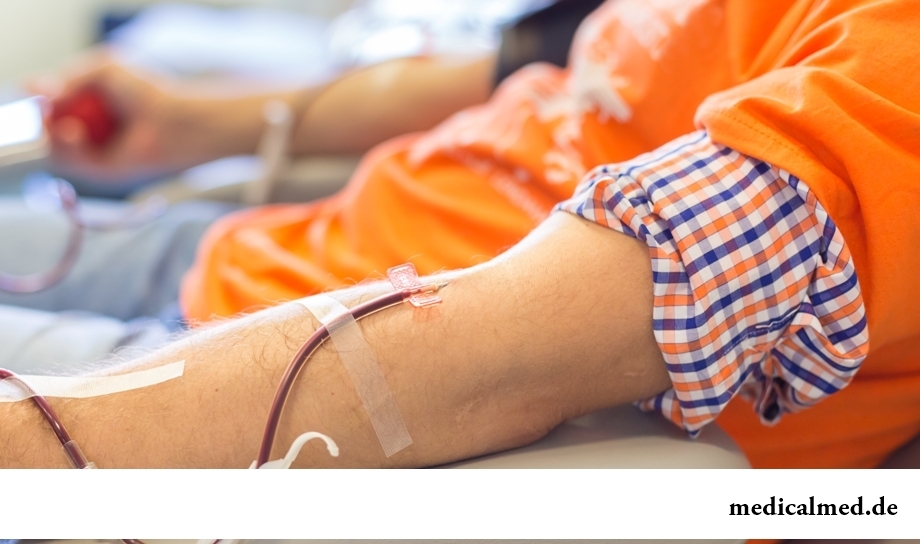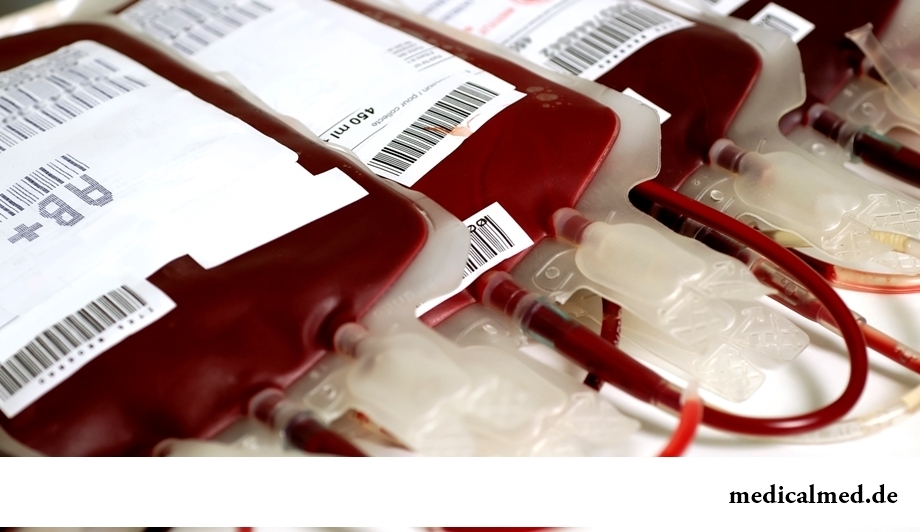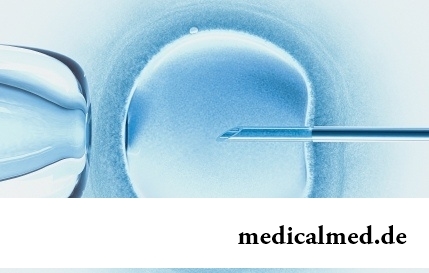





Advantage and harm of blood donation: 12 delusions about donorship
Transfusion of donor blood has almost century history. In spite of the fact that this procedure is quite usual for many people, process of blood donation is still surrounded with numerous myths. Today we aimed to discredit the most widespread of them.

To take a blood test it is unhealthy
The amount of the blood circulating in the adult's organism averages 4000 ml. It is proved that periodic loss of 12% of this volume not only does not exert negative impact on health, but also works as the peculiar training activating a hemopoiesis and stimulating resistance to stresses.
The volume of one-time delivery of donor blood does not exceed 500 ml (from them about 40 ml take for the purpose of carrying out analyses). The organism quickly compensates blood loss, without any negative effects.
The procedure of blood donation is painful and tiresome
Modern blood donor centers are equipped by all necessary in order that the person taking a blood test felt conveniently and comfortably. Unpleasant feelings of the donor come down to instant pain at the time of introduction of a needle. The further procedure is absolutely painless.
Delivery of whole blood occupies about a quarter of hour. After its termination the donor can test easy fatigue therefore in day of holding a procedure it is not recommended to do hard manual work or to go to a distant trip. Delivery of components of blood (plasma, thrombocytes or erythrocytes) can borrow till one and a half o'clock.
There is a danger of infection of the donor
Many consider that the donor risks to get one of the dangerous infections which are transmitted with blood (for example, a virus of hepatitis C or HIV). Now it is absolutely excluded: for blood sampling only one-time tools and devices which unpack in the presence of the donor are used, after the procedure immediately utilize them.
The need for donor blood is small
Patients to whom do difficult surgeries, women in labor with the complicated childbirth, people with severe injuries or burns need hemotransfusions. Donor blood and its components are used at treatment of leukoses and other oncological diseases. There are artificial blood substitutes and plasmas, but their use has a number of contraindications as sometimes results in negative side effects.
Completely to provide a health system with necessary amount of blood, 40-50 people from each one thousand have to be donors. In some European countries such ratio is reached, but in Russia this indicator is much lower than norm so far.
Statistically, every third person on our planet at least once in life needs hemotransfusion or plasmas. At the same time blood of all groups, and not just rare as it is sometimes considered to be is demanded.
Any person can become the donor
It far not so. In Russia the donor it is impossible to become:
- aged more young 18 or 60 years are more senior;
- having body weight less than 50 kg;
- being the infected hepatitis, a human immunodeficiency virus or tuberculosis;
- having any disturbances of composition of blood or a disease of blood (the hemopoietic bodies);
- having an oncological illness.
Temporary restrictions of blood donation extend on:
- pregnant women (blood will accept not earlier than in a year after the delivery);
- the feeding mothers (it is possible to become the donor in 3 months after the termination of a lactation);
- women in the period of periods (blood donation is allowed not less than one week prior to its beginning or in a week after the termination);
- the people who had flu or a SARS less than a month ago;
- the patients who transferred surgical dental intervention (there have to pass not less than 10 days);
- the people less than a year ago treated by an acupuncture method, or who made a tattoo (piercing) of any part of a body;
- the patients who recently transferred vaccination (the term which passed before blood donation depends on a type of a vaccine and makes from ten days to one year).
Besides, branch can be received from donorship if analyses in day of the procedure show existence in an organism of inflammatory process or traces of alcohol, body temperature is increased or there are serious deviations from normal indicators of arterial pressure. Men can take a blood test not more often than five, and the woman – four times a year.
Blood donation for transfusion assumes a responsible attitude. In two days prior to the procedure the donor has to refuse alcoholic drinks. It is necessary to refrain from smoking at least within an hour before blood sampling. Three days prior to the procedure it is necessary to stop reception of the medicines reducing indicators of coagulability of blood (among them aspirin and anesthetics).
The donor has to eat high-calorific products before and after the procedure
One day before blood donation it is necessary to refuse the use of greasy, milk, meat food, eggs, smoked products, chocolate, bananas, canned food and fast food.
It is important that future donor did not make mistakes which can negatively affect on his health. It is better to take a blood test in the first half of day. Before the procedure it is necessary to sleep, have breakfast well, having given preference to porridge or pastries and sweet tea. After blood donation it is necessary to eat it is balanced (whenever possible not less than 5 times a day) and not to forget to drink more liquid to compensate blood loss.
The procedure of blood donation provokes a set of weight
Donorship in itself (including regular) does not affect body weight in any way. The risk to grow fat is at those people who, having misunderstood recommendations about catering services, begin to use strenuously high-calorific products for blood donation, and cannot stop in time.
Donorship badly affects appearance
Some women do not decide to take a blood test, considering that it will have an adverse effect on complexion and elasticity of skin. Actually regular donorship speeds up work of the hemopoietic bodies, forces blood to be updated quicker, well affects functioning of the immune, cardiovascular and alimentary system.
Donors, as a rule, have no problems with a tone and skin color of the person. They are vigorous, tightened, active and positively ready.
Regular donorship causes accustoming
In this case it is possible to speak about accustoming only in sense of the increased resistance of an organism to various stresses, diseases and negative impact of external environment. So, regular blood donation accustoms to fill quickly an organism blood loss that can play a positive role in case of an injury or a disease from which nobody is insured.
It is clinically confirmed that donorship reduces risk of development of cardiovascular pathologies. Some men note that regular blood donation positively influences a potentiality.
For success of hemotransfusion the donor and the recipient have to have one nationality
The statement has nothing in common with reality. Compatibility of the donor and recipient (the person to whom transfuse blood) depends only on composition of blood, that is existence or absence in it certain proteins. For transfusion matter compatibility of blood on groups (AB0 system) and to a Rhesus factor. These indicators at various races and ethnoses are distributed almost equally.
At suitable proteinaceous structure blood of the donor can be transfused to the recipient regardless of a sex, age or a nationality.

Personal qualities of the donor can be transferred to the recipient
Prejudice has very ancient roots. It is conformable to ideas of primitive people that having eaten bodies of the enemy it is possible to get his force, bravery, mind and other fine qualities. The similar delusion occurred also in the Middle Ages when blood was considered as the bearer of a part of soul of the person.
Actually hemotransfusion does not add to the recipient any personal qualities and abilities of the donor. It can only aggravate problems with health if the unfair donor dared to take a blood test, without refusing addictions. The reason here at all not in transfer of information ciphered in blood, and that decomposition products of nicotine, alcohol and other toxins capable to do harm to health can get to a blood stream of the recipient. For this reason the donor has to be very responsible, and medical personnel – attentive.
The church considers donorship inadmissible
Donorship is approved by the main faiths as the act of self-sacrifice and the business aiming at rescue of human life. The adherents of some sects refusing hemotransfusion and not allowing to carry out the procedure to the children make a huge mistake which can bring and quite often leads to a lethal outcome. Some authoritative representatives of orthodox Christians consider it direct disturbance of a precept "Thou shalt not kill".
Reserves of blood and its components are necessary for rescue of people, and the procedure of delivery is painless, safe and is even useful to health. You should not deny also positive psychological effect of donorship: consciousness that you make a disinterested and noble act raises a self-assessment. In the absence of contraindications donorship can only be welcomed.
According to researches, the women drinking several glasses of beer or wine in a week have the increased risk to develop breast cancer.

During foot walks blood moves on vessels more actively and one and all bodies are supplied with a large amount of oxygen. N...
Section: Slideshow
The sclera and mucous membrane of an eye are intensively supplied with blood vessels which problem - to saturate nervous tissues of body with nutrients and oxygen. In a normality vessels are almost not noticeable, however at their expansion (owing to истонч...
Section: Articles about health
From sexual contacts each person can test insufficiently strongly expressed sexual desire or lack of satisfaction from time to time. However when it happens regularly, it is an occasion to think about health. Most of people does not hurry to ask similar questions physicians: one consider that they will be able to cope with malfunctions independently, others hesitate to report to strangers about so delicate problems and hope that troubles will stop by itself....
Section: Articles about health
New year, wedding, birthday, office party – an occasion to drink at the Russian person will always be. How to reduce a negative impact...
Section: Articles about health
Summer in the heat. Many are going to spend vacation abroad. Travelers the tender seas, rest on beaches wait, for sightseeing, campaigns on natural and cultural reserves. But, unfortunately, on vacation also problems about health can wait for us...
Section: Articles about health
Coffee – favourite drink of many. For the last decades it more than once already declared very harmful, extremely useful and even necessary for normal life activity. In spite of the fact that this product became for us usual for a long time, there are many myths about properties of coffee and its impact on a human body. Readers can get acquainted with the most widespread of similar delusions today....
Section: Articles about health
Extracorporal fertilization – one of the most modern methods of controlling with infertility. So far it already helped znach...
Section: Articles about health
Eyes – unique body on the structure thanks to which the person obtains about 80% of information on the world around: about a form, color, size, the movement, and also many other parameters of objects or phenomena. But whether much we know about the most valuable body...
Section: Articles about health
The stroke is one of the most widespread diseases of the person, annually in the world about 6 million cases of this pathology are registered. According to medical statistics, strokes occur almost three times more often than myocardial infarctions. The disease belongs to heavy, and has an unfavourable result: the lethality reaches 40% among women and 25% among men. A considerable part of the patients who endured a stroke cannot be recovered completely. We suggest readers to examine...
Section: Articles about health
Beauty shop – the place which is associated only with positive emotions: joy, pleasure, relaxation. One...
Section: Articles about health
Hemorrhoids – extremely widespread disease. Periodically arising inflammations and bleeding of hemorrhoidal nodes cause serious discomfort to nearly fifteen percent of adults. Meanwhile, having a clear idea of the aggravation reasons...
Section: Articles about health
Almost each of us during life faced dissatisfaction with own body. At such moments, as a rule, we begin to shame ourselves, urgently we go on the most rigid diet promising minus of 10 kg in a week, or we exhaust ourselves in the gym to almost death. As a rule, similar attempts come to an end with a campaign to the refrigerator for jamming of the next stress. Further history repeats itself with individual frequency....
Section: Articles about health
Many parents of children at the age of 2-4 years face excessively whimsical behavior of the child. The kid exhausts constant crying...
Section: Slideshow
History of use of an anesthesia during operations contains more than 160 years. Annually in the world hundreds of thousands of surgical interventions during which to patients the substances immersing them in a dream and saving from pain are entered are carried out. Using an anesthesia to these...
Section: Articles about health
Bees – really unique beings. Practically all products of their life activity are used by the person. Since the most ancient times medicinal properties of honey and other substances received in the course of beekeeping are known. The fact that all these products are recognized not only national, but also official medicine is especially significant. About influence and routes of administration of bee "drugs" the speech in this article will also go....
Section: Articles about health
Venereal diseases in medicine are called the infections which are transmitted preferential sexually, now they are so...
Section: Articles about health
For residents of the countries of Southeast Asia various algas are an obligatory component of a daily diet. Their popularity is connected not only with high tastes, but also with numerous curative properties. Russians are a little familiar with...
Section: Articles about health
For many women the word "fat" sounds as a sentence. In aspiration to an ideal figure they try to exclude, first of all, from the menu all dishes containing fats without having at the same time a clear idea of a role of these substances in exchange processes, and of effects for health with which food restrictions of this sort are fraught. For what the human body needs fats and as their deficit in a diet is shown, we also will try to find out....
Section: Articles about health
People know that thermal sources have salutary force long ago. Treatment by natural waters is one and...
Section: Articles about health
The phenomenon of the panic attack is known long ago, but the reasons of its emergence still are up to the end not found out. It is established that more than 30% of people at least once in life become the victims of very unpleasant phenomenon: without everyones on that the reasons they have a feeling of horror, with...
Section: Articles about health
The modern person not always manages to find housing in the environmentally friendly region and such work which would not do harm to health. With food stuffs at first sight the situation is much better: shops are overflowed with goods which are positioned by producers as very useful and absolutely safe. Many Russians are absolutely sure that the choice of products with marking "bio", "эко" or "organik" guarantees them and members of their families an optimal variant of food. To a sozhala...
Section: Articles about health
About 10-15 years ago existence of the computer in the apartment of the Russian was considered as a rarity and office rooms were only on перв...
Section: Articles about health
The sudden heat on all body which is followed by perspiration and a cardiopalmus – the phenomenon familiar to many people. Most often such states called by "inflows" result from nervous or physical overworks and disappear right after rest. Odn...
Section: Articles about health
Aging — natural and inevitable process. Over time our skin loses elasticity, on it saggings are formed, the face form loses former clearness. The procedure of nitevy lifting (nitevy tightening) can successfully solve this problem. In order that it is better to get acquainted with this popular procedure, we will tell you 6 cognitive facts about it....
Section: Articles about health
Life activity of one-celled fungi of the sort Candida is a proximate cause of development of candidiasis (milkwoman), it is related...
Section: Articles about health
According to data of World Health Organization, the cataract is diagnosed almost for 7% of the population of Earth. The statistics of incidence is considered not full as at an initial stage the illness, as a rule, does not cause to the person of special inconveniences, and many having got sick...
Section: Articles about health
Visit of doctors – business not the most pleasant, and many people do not hurry to undergo necessary planned inspections. Such behavior is extremely thoughtless and improvident. Our health is necessary not only to us: wellbeing of darlings, children, grandsons and aged parents directly depends on as far as we are vigorous and able-bodied. Therefore in time to be inspected – a duty of any modern person. Specialists consider that 7 regular surveys and di are especially necessary for women...
Section: Articles about health
